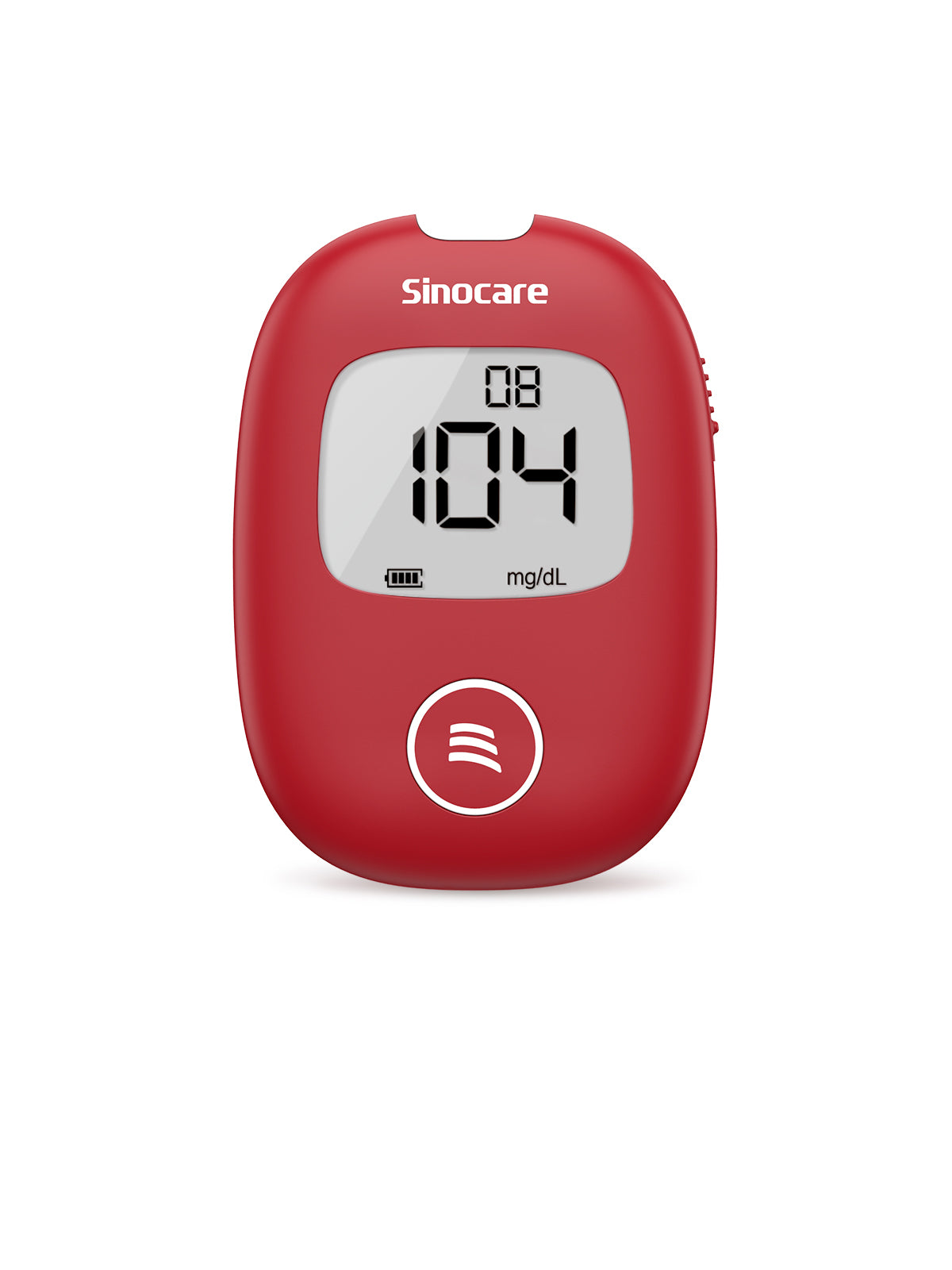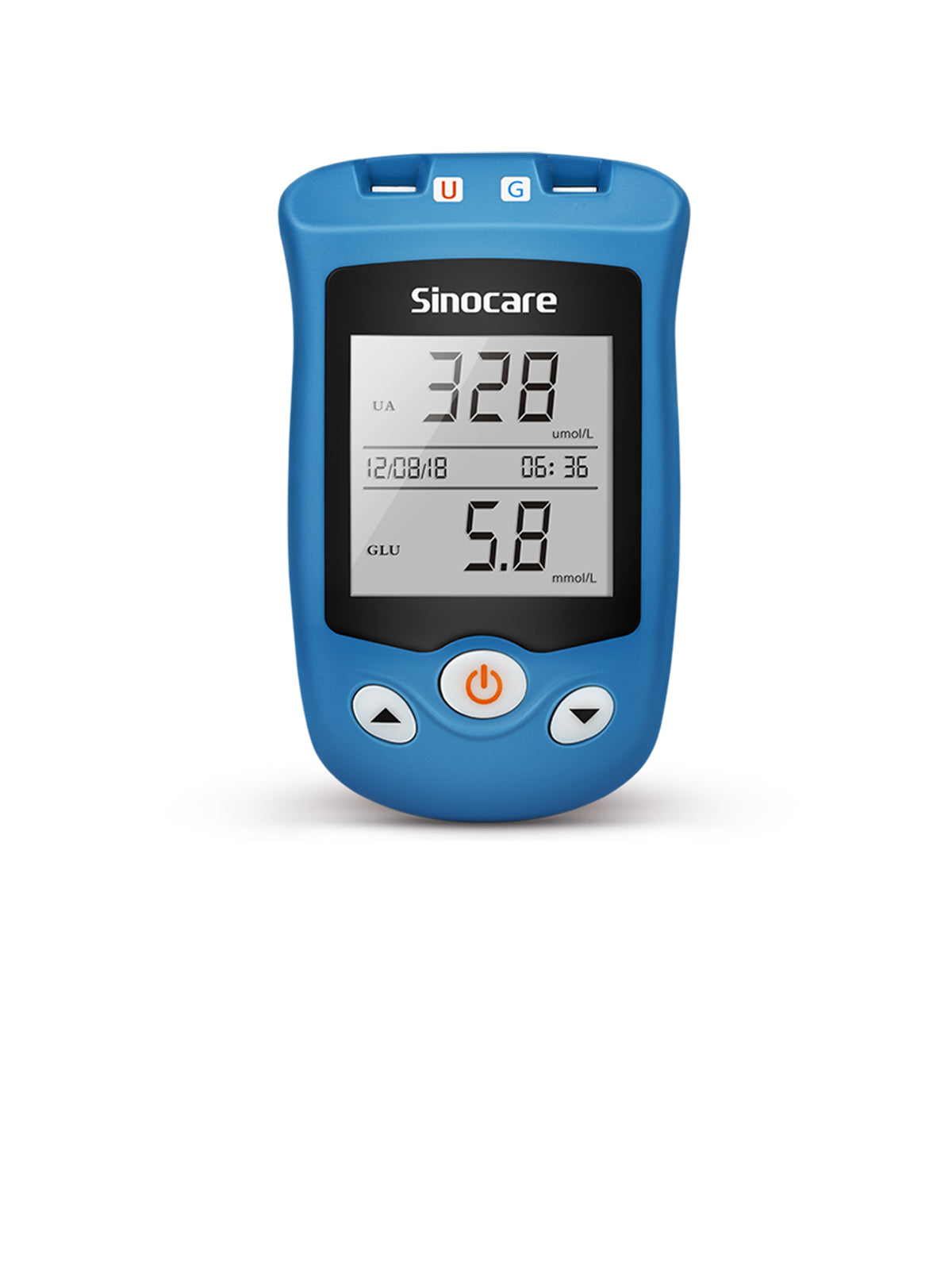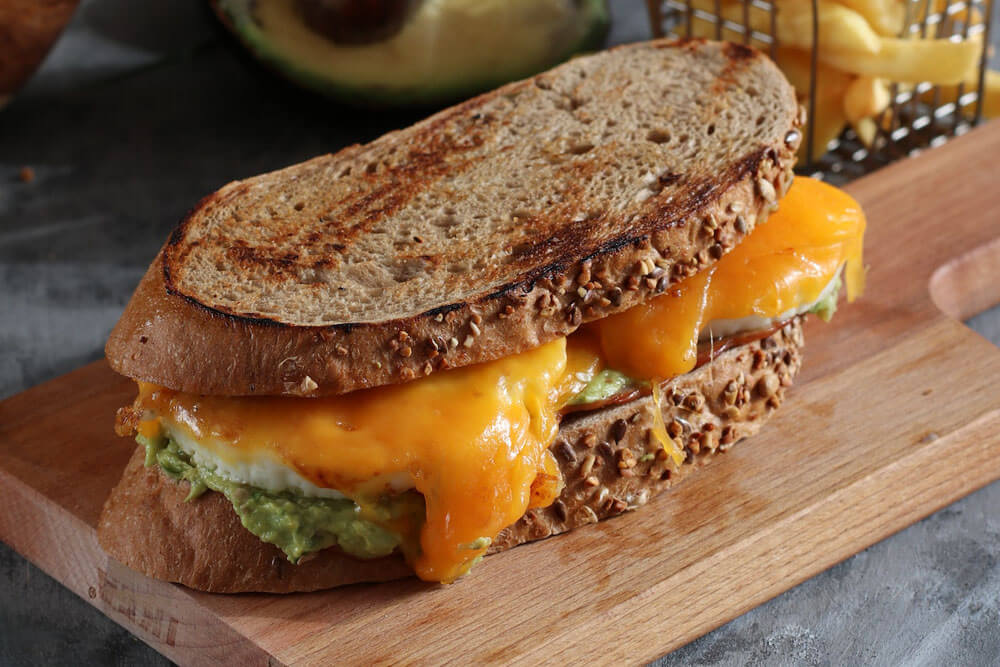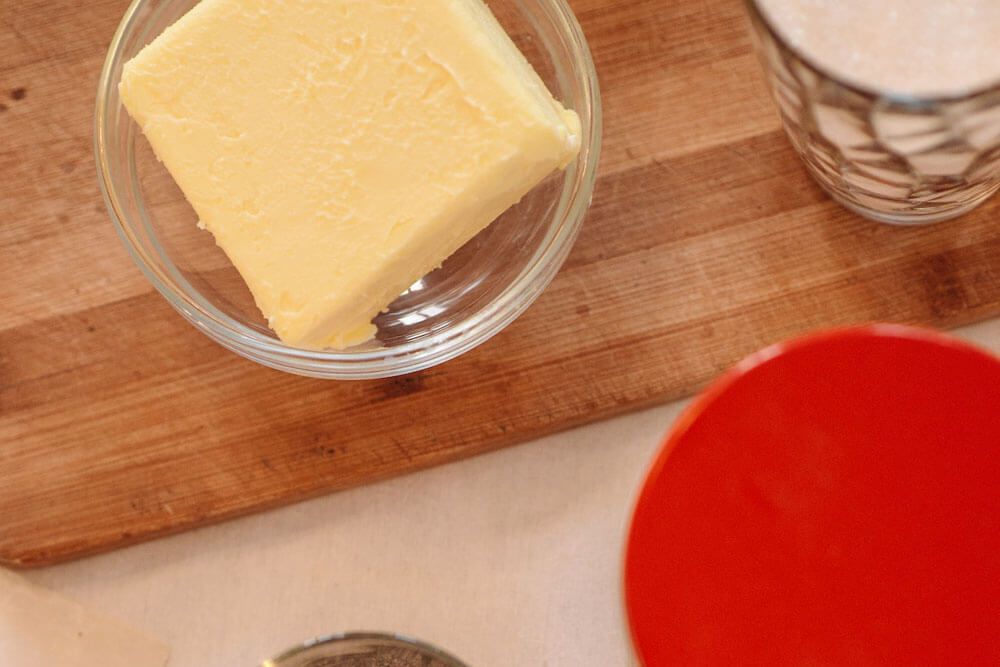Bread and cheese are healthy foods that are part of the Mediterranean diet, the basis of the European tradition, and they provide the right nutrients for a balanced and healthy life. On the other hand, bread can be rich in carbohydrates, and cheese can be rich in calories and fats, which are dangerous for people with diabetes, so you should never exceed the quantities.
Calories/Sugar/GI/Other Nutrition in Cheese on Toast
Depending on the type of cheese, it has different nutritional values. Therefore, depending on the recommendations received from your doctor, dietician, or nutritionist, you can evaluate which cheese can be better for creating good toast. The table below shows the nutritional properties of the most common types of cheeses [1]:
| Brie (1 ounce, or 28 grams) | Cheddar (1 ounce, or 28 grams) | Feta (1 ounce, or 28 grams) | Gouda (1 ounce, or 28 grams) | Mozzarella (1 ounce, or 28 grams) | Swiss (1 ounce, or 28 grams) | American (1 ounce, or 28 grams) | |
|---|---|---|---|---|---|---|---|
| Calories | 95 | 114 | 75 | 101 | 85 | 111 | 102 |
| Carbs | 0.1 grams | 1 gram | 1.1 grams | 0.6 grams | 0.7 grams | 0.4 grams | 1.3 grams |
| Fat | 7.9 grams | 9.4 grams | 6.1 grams | 7.8 grams | 6.3 grams | 8.8 grams | 8.6 grams |
| Protein | 6 grams | 6.4 grams | 4 grams | 7.1 grams | 6.3 grams | 7.7 grams | 5.1 grams |
| Calcium | 4% of the DV | 15% of the DV | 11% of the DV | 15% of the DV | 11% of the DV | 19% of the DV | 22% of the DV |
| Sodium | 8% of the DV | 8% of the DV | 14% of the DV | 10% of the DV | 6% of the DV | 2% of the DV | 20% of the DV |
Benefits and Risks of Eating Cheese for Diabetics
When taken in moderation, cheese can be safely consumed by people with diabetes. Of course, it is always better to choose low-fat and low-sodium cheese (the table above can help) to avoid diabetes-related risks such as obesity and hypertension. Generally, melted cheeses are the richest in salt and should be avoided, while as regards the fat content, all cheeses are equivalent. [2]
Will Cheese Affect Blood Sugar Levels?
For diabetes, all cheeses have a low glycemic index and therefore do not cause glycemic peaks. At the same time, it is good practice to pay attention to foods associated with cheese, such as bread, crackers, and fruit, as these foods directly cause harmful glycemic peaks. [2]
Can Diabetics Eat Cheese on Toast? What Kind of Toasts are Recommended for Diabetics?
Choosing a low-sodium cheese in small quantities can be ideal for forming a delicious toast. On the other hand, the white bread usually used to create toast is responsible for high glycemic peaks. If you want to have delicious toast without having harmful side effects, the trick is to choose a less refined bread.
For example, you can select wholemeal bread rich in fiber to counteract diabetes, use thinner slices of bread, or add fiber-rich vegetables that counteract the effects of bread. Cooking can also have a significant impact. For example, making toasts grilled or cooked in toasts is much healthier than fried or oil-soaked toasts.[3]
Butter Alternatives for Toast Toppings
Butter is a safe food for people with diabetes, as long as it is taken in moderation. Depending on the type of butter, this may be slightly fatter than other cheeses. Creating toast with butter can be as safe as toast made with cheeses. The rule of the previous paragraph applies: use wholemeal bread and add vegetables for a lower glycemic peak, and avoid adding cheese if you have chosen to make buttered toast. [4]
Cheese Alternatives for Diabetes
To choose which cheese can be better for your diet, you can use the above nutritional table to get comparative support.
Can a Diabetic Eat Butter?
As we have introduced before, butter is a safe food for people with diabetes. Depending on the type of butter, this may be slightly fatter than other cheeses. [4]
Can Diabetics Eat Cheese and Crackers
All cheeses have a low glycemic index and therefore do not cause glycemic peaks. Consequently, they are safe for people with diabetes. However, it is a good idea to pay attention to foods associated with cheese, such as bread, crackers, and fruit, as these foods directly cause harmful glycemic peaks. If a person with diabetes likes to eat cheese with crackers, they should choose whole grain crackers rich in fiber or add vegetables. [5]
Is Toast Healthy for Diabetes?
A generic, cheese-free toast can take on different nutritional properties depending on its production. The type of bread, the type of seasoning, and the type of baking can significantly impact. As seen so far, to get a healthy toast, it could be an excellent choice to choose wholemeal bread, use vegetables as a condiment and make a grilling. Indeed, it will not be the best food for a person with diabetes, but with it, it will be possible to have a good snack without major blood sugar problems.
The Best and the Worst Cheeses
Cheeses, as mentioned, do not create problems from a glycemic point of view and are an ok food for people with diabetes. You have to pay attention to their caloric and fat content and possibly choose a cheese with little sodium. Given the table above, the best cheese could probably be Feta or Mozzarella with a low level of calories and fat. At the same time, the worst to avoid is Cheddar, which is very delicious but unfriendly about calories and fat. [6]
Final Thoughts
When created carefully and in moderation, cheese toast can be a good meal for people with diabetes. Although white bread is tastier, choosing wholemeal bread and adding vegetables together with cheese can be an excellent help to avoid harmful glycemic peaks.
References
[1] https://www.healthline.com/health/is-cheese-bad-for-you#nutrition-facts
[2] https://www.medicalnewstoday.com/articles/317222#can-people-with-diabetes-eat-cheese
[3] https://type2diabetes.com/nutrition/healthy-grilled-cheese
[4] https://www.medicalnewstoday.com/articles/317222#summary
[5] https://www.medicalnewstoday.com/articles/317222#can-people-with-diabetes-eat-cheese
[6] https://www.healthline.com/health/is-cheese-bad-for-you#nutrition-facts










1 comment
Camilo Márquez Pinzon
Soy diabético,me comí media libra de queso sin ningún acompañamiento , tuve dolores de piernas insoportables,tuvo q ver la cantidad del queso? Gracias
Leave a comment
All comments are moderated before being published.
This site is protected by hCaptcha and the hCaptcha Privacy Policy and Terms of Service apply.